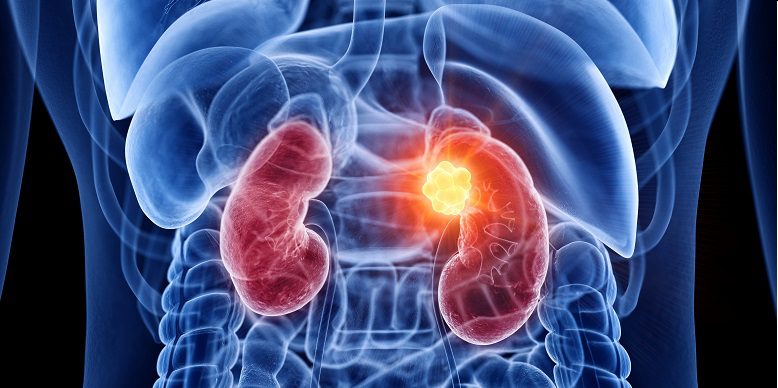Kidney cancer, also referred to as renal cell carcinoma (RCC for short), affects approximately 60,000 Americans each year. Symptoms of kidney cancer can include an abdominal mass, abdominal pain, and/or blood in the urine. However, they are often found incidentally during imaging for other issues, and cause no symptoms at all.
Kidneys normally function to help regulate water and electrolyte balance in the body. They also support blood cell development through erythropoietin (EPO). While most people have two kidneys, some are born with only one (referred to as a solitary) kidney and can have normal kidney function. Risk factors for kidney disease include smoking, diabetes, high blood pressure, elevated cholesterol, and obesity. It is important to control these factors to decrease the risk of kidney disease.
Kidney tumors are evaluated with advanced imaging which may include a CT scan and/or a MRI. Rarely do kidney tumors need to be biopsied, unless results will change management options.
There are several options for management of kidney tumors. Surveillance of small kidney tumors, usually less than 3cm, is becoming an increasingly utilized option. Incidentally found, small kidney masses, have a very low potential to spread. Surveillance usually consists of routine imaging to ensure that the tumor is not growing. If growth is observed, intervention is usually indicated. Surveillance may allow a patient to avoid surgery; however, there is a small potential for spread.
Ablation of small renal masses works by utilizing thermal energy to destroy cancer cells. This therapy is generally less invasive than surgery which means less risk and side effects. However, it is generally considered less effective at curing the cancer and is often limited to special circumstances.
Surgery can be performed to remove the entire involved kidney (known as a radical nephrectomy) or to remove only the tumor and spare the remainder of the kidney (known as a partial nephrectomy). Each has specific risks and benefits that should be discussed with your surgeon. A partial nephrectomy spares the remainder of the kidney which may lead to less risk of kidney disease. This surgery is often done robotically.
Not all tumors are amenable to a partial nephrectomy and may require a radical nephrectomy. This is often a laparoscopic surgery done through several very small incisions.
Additional Resources:


